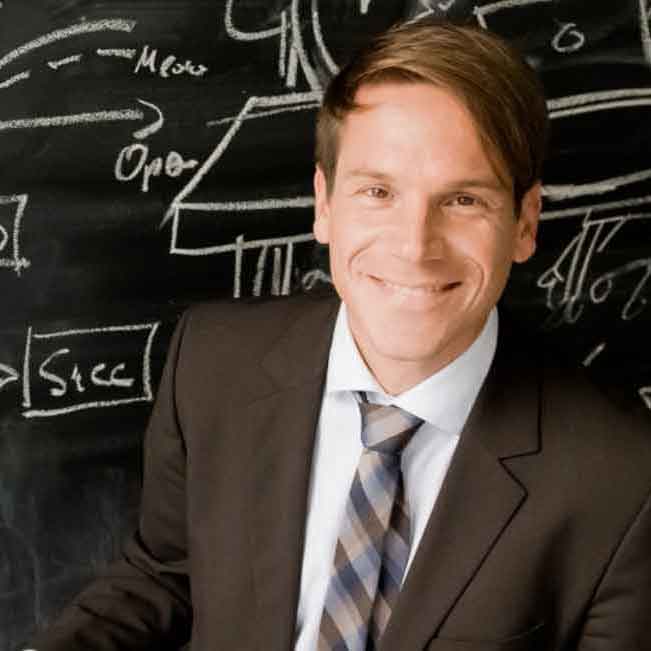A story of and about personalities and visions
Chapter 1 (1997 - 2013) by Wolfgang Bauhofer
IDEAS AND OBJECTIVES
The story of the NIT's origins began in 1997 with initial considerations to establish a private, tightly organized campus university alongside the TUHH, primarily for foreign students. President Hauke Trinks formulated the motive for this: "We must bring the world to us!" The plans were soon modified so that the newly introduced English-language Master's degree courses would represent the engineering education and an attractive overall package would be put together with an additional non-technical range of courses. The increased international networking of medium-sized and small industrial companies had increasingly led to the realization that a successful engineer should be familiar with economic factors in a global environment in addition to profound specialist knowledge. The industry's need for such globally trained engineers, who complement their foreign background with further studies in Germany, made private funding appear possible. The original working title International Campus University (ICU) for the planned institution was soon changed to Northern Institute of Technology (NIT). The phonetic proximity to the famous MIT was consciously accepted.
These ideas were not only met with a positive response from Hamburg's politicians. For this reason, the concept development was driven forward by a handful of TUHH employees, the legendary Task Force, in the form of a part-time job. The ZEIT Foundation provided the funds for this with a generous donation. In mid-1998, the task force presented an interim report of almost 60 pages, which came very close to the final concept of the NIT:
The aim of the Northern Institute of Technology as an international campus university is to offer Master's degree courses in mechanical engineering, electrical engineering and process engineering in a network between the Technical University of Hamburg-Harburg and this international study college as a first step for
- outstanding students from Asia, Latin America and Eastern Europe
- combined with study-related industrial internships
- and an accompanying study of the language, culture, economy and politics of Germany and Europe
- with internationally compatible degrees
- and a credit point system
By linking the English-language Master's degree programs of the Hamburg University of Technology with the additional offer of the Studienkolleg, divided into four study quarters, a maximum of combination of the excellent university offer of the TUHH with the special offer of a Studienkolleg is achieved On the one hand, German and foreign students are offered joint studies in the Master's degree programs of the Hamburg University of Technology and, on the other hand, the separate program tailored to the needs of foreign students through the Studienkolleg.
So the solution is: Enrol foreign students at Hamburg University of Technology in the English-language Master's degree courses already established and at the same time admit them as members of the international preparatory college Northern Institute of Technology to be founded as an international campus university.
REALIZATION
The next steps followed quickly. First of all, a support association was established to found NITHH GmbH, consisting of over 30 TUHH professors. Each member contributed DM 2,000 to the share capital of the non-profit limited company by paying an admission fee. This out-of-pocket financing would later prove to be an invaluable advantage in the acquisition of industrial grants. On December 2, 1998, the supervisory board of NITHH GmbH was constituted and appointed Hauke Trinks as founding president and Jörg Dräger as full-time managing director (CEO). The development work could begin. Many people contributed to the creation of the NIT. These contributions ranged from full support to non-prevention. In the author's opinion, the achievements of four individuals deserve special recognition in this context. First and foremost, Hauke Trinks must be mentioned. He had the idea and, with his unique enthusiasm, was able to win over professors from the TUHH, Hamburg politicians and influential business leaders for the NIT project. One of these captains of industry was the then CEO of Körber AG, Dr. Eberhard Reuther, who was enthusiastic about the idea of the Global Engineer and convinced the Körber Foundation to get involved in financing the NIT building. Krista Sager played an important role in the birth of the NIT, stemming the political headwinds as Senator for Science. Her willingness to join the NIT supervisory board was a courageous decision.
In the end, the appointment of Jörg Dräger as the first CEO of the NIT proved to be an absolute stroke of luck. After several years as a management consultant, Dräger had the irrepressible desire to get something off the ground himself. The author, who succeeded Trinks as NIT President in April 1999, experienced Dräger's phenomenal drive first-hand: What was discussed that evening was already implemented the next morning. The key issues were: Developing the curriculum, engaging lecturers, organizing marketing, acquiring sponsors and selecting suitable students for the demanding double degree course.
In the course of 1999, a real construction site was added, that of the future NIT building. at the political level, the foundation of the NIT had been finalized with the provision of the city-owned property through the Senate's communication to the Bürgerschaft in printed matter 16/2261 in March 1999. the foundation stone for the building was laid on August 24, 1999. in November 2000, after only 15 months of construction, the NIT building could be occupied.
In all areas, Jörg Dräger was the source of ideas on the one hand, but also played a key role in their implementation on the other. He created the first NIT homepage himself, probably in a single night shift. The curriculum was organized in eight quarters and was based on the task force's proposal, which did not provide for a state-recognized degree. According to the proposal, training at the NIT was to supplement engineering studies in the fields of business administration, economics, law, economic and social policy, culture, history and German. Apart from the German lessons, which were initially taught by the IBH and taken over by the Goethe-Institut after two years, English is the language of instruction. The cooperation with the Goethe-Institut, which operates worldwide, has proven to be particularly valuable to date. When recruiting lecturers in economics, Jörg Dräger was able to draw on the academic environment of the management consultancy Roland Berger, while the subject of law was covered by cooperation with an international law firm. Prof. Dr. Margarete Jarchow, who heads an institute of the same name at the TUHH, was responsible for the humanities. The biggest problem turned out to be the short-term recruitment of suitable students for the first cohort. It took some convincing to win over around 25 "high potentials", who naturally had many options open to them, as pioneers for the newly conceived double degree course.
In August 1999, this group started their NIT studies as "Class 01" with an intensive German course lasting several weeks. A coincidental but fortunate circumstance is that since then the class number has coincided with the graduation year (e.g. graduation class 13 in 2013). While the first two classes were reserved exclusively for foreign students, over the years the NIT program was increasingly opened up to German students, which was also facilitated by the switch from the Diplom to the Bachelor-Master system. Today, around a third of each year group is of German origin. The least of the problems in the early days of the NIT was, it is hard to believe today, the acquisition of sponsors. PPP, i.e. public-private partnership, was "in" and many companies wanted to participate in this innovative training concept for engineers.
However, DM 80,000 did not seem too much for a scholarship without the scholarship holder being tied to the sponsor. The recalculation of the value of the NIT training carried out a few years later resulted in 27,000 euros, a price that has now remained unchanged for over ten years. In particular, the economic and financial crisis from 2007 onwards had a negative impact on the willingness of businesses to donate, although Heike Bläsig has been working with great dedication as a fundraiser for the NIT since this time. The decline in donations was partly compensated for by the commitment of foundations (Claussen-Simon, Nordmetall, Joachim Herz) and self-payers. From the very beginning, the Industry Advisory Board, which meets several times a year, has been an important link between NIT and its sponsors. Dr. Rüdiger Grube, then Daimler, now DB, was an extraordinarily valuable chairman of this committee. The idea of the NIT Dialogue, a very successful event with outstanding participants from politics, business and science, also goes back to Grube.
-
 The long-standing management team:
The long-standing management team:
From left: Chairman of the Supervisory
Board Dr. Gottfried von Bismarck,
President Prof. Dr. Wolfgang Bauhofer,
Managing Director Dr. Christoph Jermann. -
 Important pillars of the NIT:
Important pillars of the NIT:
Prof. Nedeß (left, President of the TUHH
during the start-up phase of the NIT) and
Prof. Thomas J. C. Matzen (right, long-time
lecturer for business planning & entrepreneurial
management and patron as well as member
of the supervisory board of the NIT.
DEVELOPMENT AND PERSPECTIVES
The fall of 2001 was important and memorable for the NIT for several reasons. Firstly, there was the attack on the World Trade Center on September 11, in which TUHH students were also directly involved. From today's perspective, it can be said that neither the TUHH nor the NIT were permanently damaged by these events.
On October 12, the graduates of Class 01 celebrated the completion of their two-year double degree program at TUHH and NIT in the Kaisersaal of Hamburg City Hall. Following the parliamentary elections in September, Jörg Dräger was appointed Senator for Science and Research of the Free and Hanseatic City of Hamburg on October 31 as a non-party member. This was a great personal success for Dräger, but a painful loss for the NIT. This was all the more so as it was not possible to find a similarly suitable successor for some time, and it was only with the appointment of Dr. Christoph Jermann as full-time Managing Director that this gap was filled. Jermann also joined the NIT in 2001 as program manager. With a doctorate in philosophy, he brought with him a new and important skill. Responsible, ethically impeccable conduct has always been an outstanding educational goal of the NIT. Together with Gunter Menge, a qualified teacher with experience abroad, who was responsible for all student matters almost from the outset, and the author, Jermann formed a reliable team that guaranteed stable conditions at and around the NIT. In December 2001, there was another significant event for the NIT, namely its participation in an evaluation of private higher education institutions by a commission of experts from the Stifterverband für die Deutsche Wissenschaft. The remarkably good assessment was seen as a great recognition of the development work carried out so far.
The curriculum of the degree program at the NIT was developed further at regular intervals. The first major need for reform arose from the understandable desire of the first-year students to be rewarded for their efforts with a recognized degree. This was only possible by increasing the proportion of economics subjects to over 50%. The proportion of humanities subjects had to be reduced accordingly. However, ethics and German remained the cornerstones of the program. In 2002, the title "Master in Global Engineering" was awarded for the first time, which was then changed to "MBA in Technology Management" in the course of accreditation. Since then, the slogan "Two Masters in two years" has been used to advertise the program. In further reform steps, the controversial presentation of the propositions was replaced by a Master's thesis, the MBA degree was linked to at least two years of professional experience, and finally the new focus on entrepreneurship was introduced. The public image of the NIT has been significantly improved in recent years thanks to the professional work of Daphna Horwitz, but there is still room for improvement. Over the years, several attempts have been made to increase the visibility of the NIT by expanding its range of services. Even in Dräger's time, cooperation with the media industry failed due to the dotcom bubble.
An Executive MBA in cooperation with the Norwegian Business School BI Oslo did not meet with sufficient demand, nor did an offer for doctoral students in STEM subjects in Hamburg. In contrast, the NIT's core business of management training for Master's students in engineering proved to be extremely robust. Other private-sector companions had long since had to give up or were only able to survive thanks to substantial financial injections. The attempt to export the NIT model to China currently appears extremely promising. Since the first visit of an NIT delegation to Nanjing University for Astronautics and Aeronautics (NUM) in 2005, an increasingly close partnership has developed, which is now set to culminate in the joint NIT China project.
Now that the not uncritical approvals from the Chinese supervisory authorities have been obtained, studies can begin in the fall of 2013. Good luck!
In addition to a number of promising professional careers for graduates, NIT teams have been able to successfully assert themselves against strong competition in national and international competitions on several occasions. These include the "Case Challenge" at the Leipzig Graduate School of Management, the virtual marketing simulation game Marga lndustry, the "mai Bangkok Business Challenge" and finally the world's largest business plan competition, the "Rice Business Plan Competition" in Houston, Texas.
One of NIT's particular concerns has always been to achieve the most lasting bond possible between graduates. On November 23, 2002, the NIT alumni association was founded under the name "NIT Alumni Network". Since 2006, a Horne Coming Weekend has been held regularly, in recent years together with a celebratory ball. Friendships are strengthened and experiences exchanged. The NIT alumni community has now grown to an impressive number of almost 400. Successful graduates are living proof of the success of the NIT concept.
After a long period of stability, the personnel carousel in the management of the NIT has been turning again since 2012. First, Dr. Gottfried von Bismarck (formerly Körber AG) handed over the chairmanship of the supervisory board to Dr. Bernd Drouven (formerly Aurubis AG) after many years of service. The next change followed in the presidency; after thirteen years, the author was replaced by Prof. Dr.-lng. Otto von Estorff for reasons of age. Finally, Dr. Jermann will leave the NIT in September 2013 to seek a new challenge as managing director of a private medical school in Hamburg.
What do we hope for in terms of further development? The new management team will bring in new ideas and, with the accompanying spirit of optimism, will shape the future of the NIT successfully.
Chapter 2 (2013 – Present) by Qianyuqing Jin
Reforming Curriculum for the Digital Future
This phase was initiated by the new CEO Verena Fritzsche, who took over the management of the NIT in August 2013. Already in 2014, the NIT’s Master program in Technology Management reaffirmed its commitment to educational excellence by receiving re-accreditation from the Foundation for International Business Administration Accreditation (FIBAA) and the German Accreditation Council. By 2019, the Master’s program underwent a significant overhaul, incorporating feedback from all stakeholders to better align with the agile, digital work environment. The reformed curriculum emphasizes flexible, practical learning through real projects, allowing students to customize their studies according to personal and professional commitments, whether they are pursuing an M.Sc. at the TUHH, working, completing a Ph.D., or managing family obligations.
To adapt to the rapid digital transformation affecting all aspects of life, the NIT established the Digital Think Tank in 2016, helping leaders and entrepreneurs to navigate digital changes effectively. In the following year, the NIT launched the Design Thinking Space, a creative environment equipped with tools like LEGO, Post-its, and writable walls. This space promotes active participation and rapid idea formation, facilitating the development of new business models through innovation methodologies such as Design Thinking.
Since 2017 the NIT has actively engaged with small and medium-sized enterprises (SMEs) through the Hamburger Wirtschaftsdialog. This initiative addresses key digitization trends, including Industry 4.0, 3D printing, and IT security, through dialogues involving founders, CEOs, and managers from SMEs.
In response to the evolving needs of the metal and electrical industries, the NIT introduced a new qualification series, “Digital Strategy,” in collaboration with Bildungswerk der Wirtschaft e.V., Nordmetall, and AGV Nord. This multi-week program, designed to support digital transformation, features modules on Business Model Innovation and Work 4.0 – Corporate Culture and Initiation of Change (Arbeit 4.0 – Unternehmenskultur und Einleitung des Wandels). Experienced coaches lead course, which has already attracted significant interest from companies for 2020.
The NIT curriculum covers the entire process from forming a business idea to finding investors, sales and marketing. Students are encouraged to create their own business idea or even found their own startup, with many receiving EXIST funding. In Spring 2020, facing the challenges of the Corona pandemic, the NIT swiftly transitioned to online teaching using tools like InsideNIT and Zoom, ensuring the continuation of the semester and adapting the curriculum as needed.
Celebrating Milestones and Building a Global Community
Reaching its 20-year anniversary, on June 29, 2018 the NIT celebrated with a grand event. The day included an official ceremony, panel discussions, and the renaming of the foyer in honor of Prof. Dr. h. c. Thomas J.C. Matzen. Guests enjoyed a range of activities, including lectures, workshops, a celebratory barbecue, and a fire show.
-
 Celebrating NIT's 20th birthday (from left to right):
Celebrating NIT's 20th birthday (from left to right):
Verena Fritzsche (CEO NIT), Dr.-Ing. Natasa Manojlovic (NIT student Class 02), Prof. Dr. Thomas J.C. Matzen (patron, supporter and professor of the NIT), Dr. Lothar Dittmer (Chairman of the Körber Foundation), Jörg Dräger (first CEO NIT), Prof. Dr. Wolfgang Bauhofer (President NIT) and Sebastian Reinecke (NIT student Class 19) -

Prof. Otto von Estorff (President NIT)
and Verena Fritzsche (CEO NIT)
In the same year, under the leadership of NIT's CEO Verena Fritzsche, the support association CommuNITy e.V. was founded with 17 members signing the charter. This association aims to foster student projects, provide scholarships, and support community events and activities financially.
Up to now, the NIT has cultivated a global network with over 750 alumni from 67 different nationalities. To strengthen this network, it organizes various programs, including Homecoming events and a buddy program, helping international students adapt to life in Germany and connect with potential friends or career opportunities. The inaugural Homecoming event with the TUHH in 2016 saw around 100 alumni returning to their alma mater. This grand reunion weekend featured open doors at all institutes, a brunch with alumni, and a grand ball at the Empire Riverside Hotel.
Graduation ceremonies are one of the highlights of the NIT experience, even the COVID-19 pandemic did not deter this tradition. Although the graduation of Class 20 had to be postponed and held virtually in 2021, it marked the first year with two graduation events. Graduates of Class 20 received their caps and diplomas ahead of the celebration and were cheered on by friends and family from around the world via Zoom.
In 2023, the NIT’s 25th anniversary was the largest event since the pandemic. On June 23rd, 270 guests, including around 75 alumni, gathered to celebrate. The official program included speeches from Katharina Fegebank, the second mayor of Hamburg; current TUHH president Prof. Andreas Timm-Giel; first NIT CEO Jörg Dräger; and Prof. Thomas Matzen, a keen supporter from the beginning. Class 07 alumna Aditi Ramdorai also shared stories and insights from her time at the NIT, offering diverse perspectives on the institution’s impact. Guests had the opportunity to connect with alumni start-ups, student projects, and close-friend companies.
Expanding International Academic Engagement
As part of its commitment to globalization, the NIT has actively engaged in an international academic exchange. In 2017, the NIT welcomed guests from Tianjin, China. Employees from media companies and the city administration participated in training sessions at the NIT, focusing on the German media landscape and digital transformation.
In 2023, NIT’s CEO Klemens embarked on a global journey to enhance the NIT’s academic connections. Over five weeks, he visited multiple countries, attending university and higher education fairs, and meeting with German ambassadors, university officials, the DAAD, the Goethe Institute, and other relevant institutions. His travels, which included stops in Delhi, Pune, Bangalore, Bangkok, Singapore, Hong Kong, Beijing, Shanghai, Taipei, Merida, and Mexico City, reinforced NIT’s global presence and fostered academic partnerships.
In February of 2024, the NIT welcomed its new President, Prof. Dr. sc. techn. Christian Schuster, who succeeded Prof. Dr.-Ing. Otto von Erstorff. Prof. Schuster has been a full professor at the TUHH since 2006 and has served in many administrative positions at the TUHH. Before joining the TUHH he had spent several years in U.S.A. and Switzerland, working in industrial research and pursuing his Ph.D. degree in Electrical Engineering, respectively, Prof. Schuster aims to further expand the NIT’s vision and values, focusing on educational excellence in areas such as machine learning, AI, data security, and climate change technologies.
The NIT has had a successful journey of 25+ years and there is now the opportunity to shape the next 25 years. The core idea of the NIT:
- To provide an engaging environment for talented engineers from all over the world to acquire skills in responsible technology management is as relevant as ever.
- Innovations like artificial intelligence and challenges like climate change require that we prepare the next generation of engineers as best we can.
Our Flying Faculty
Professors and Practioneers from all over the world





